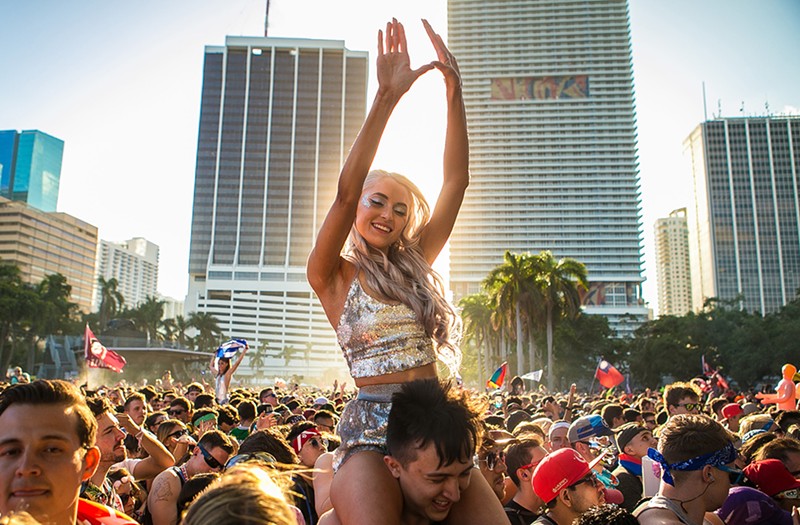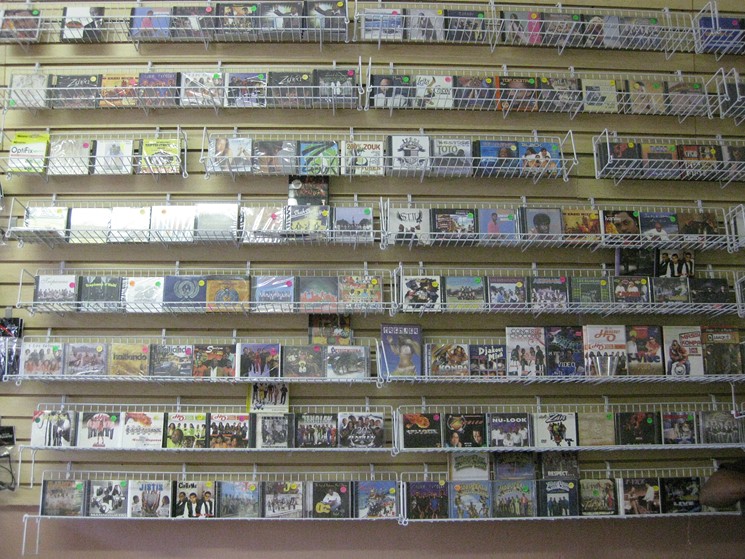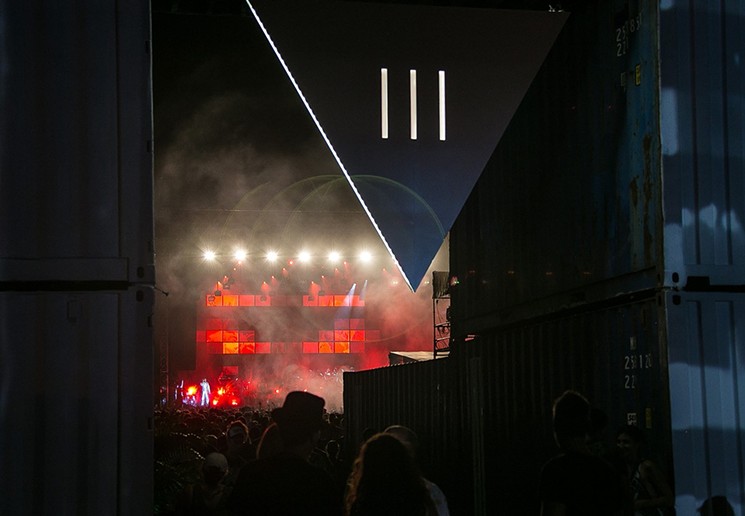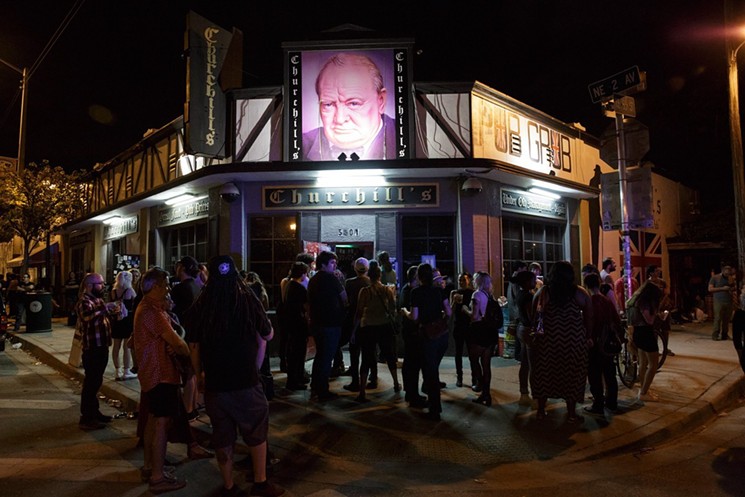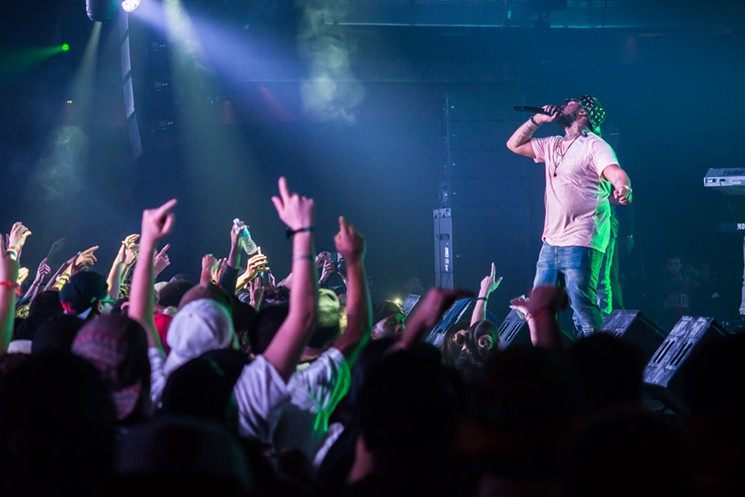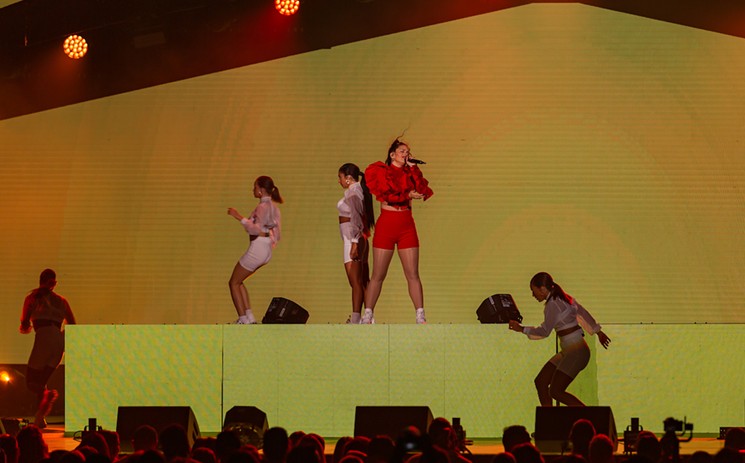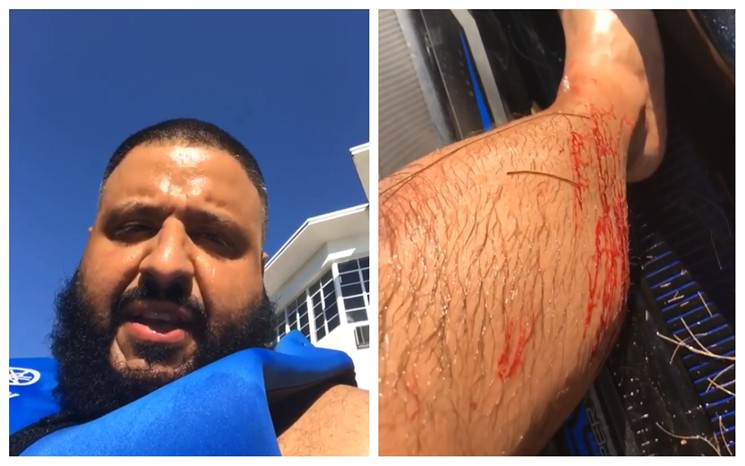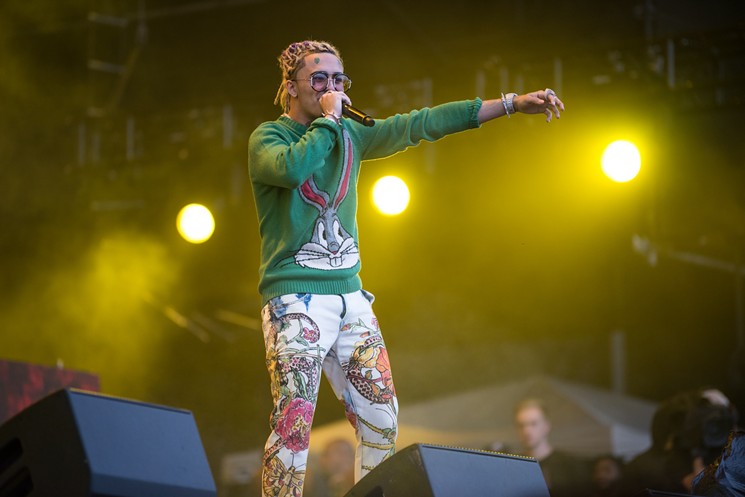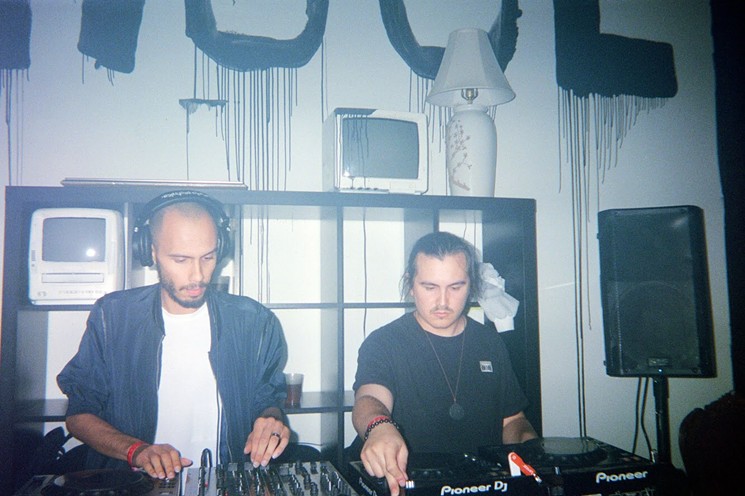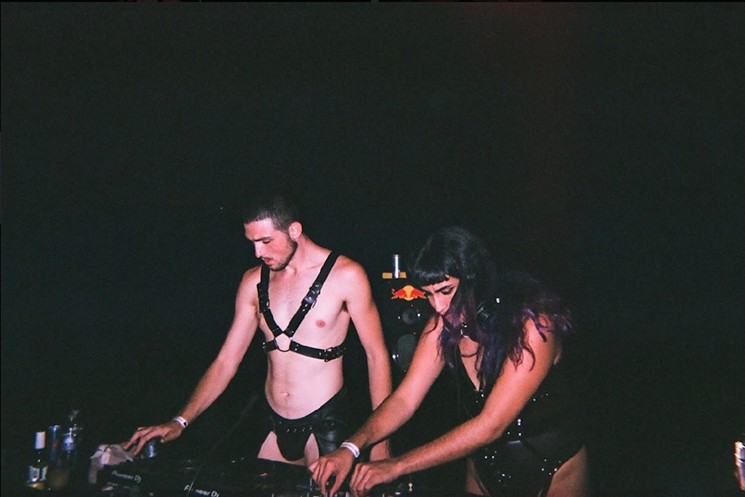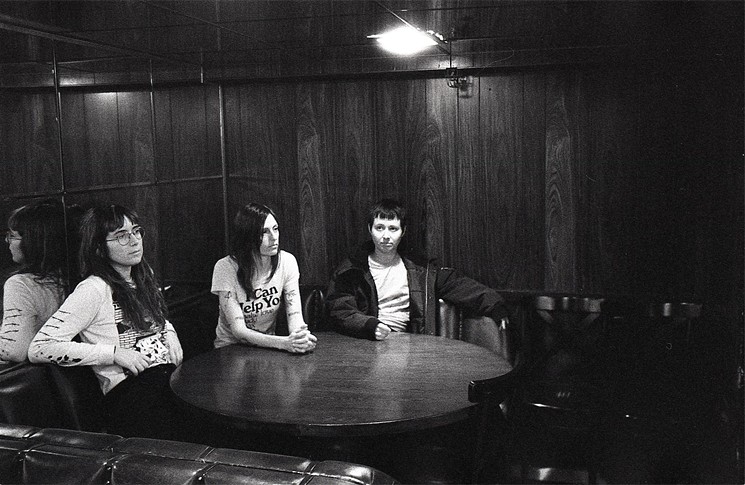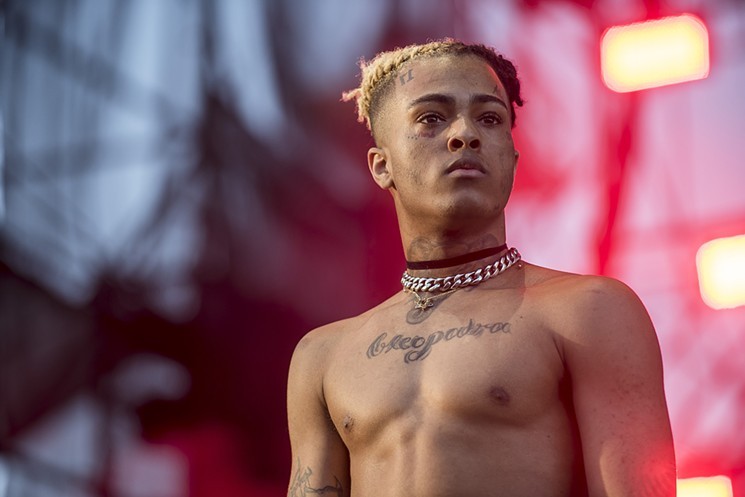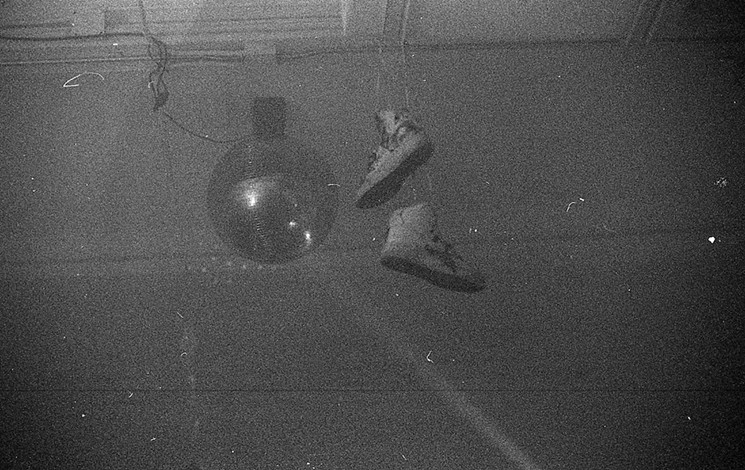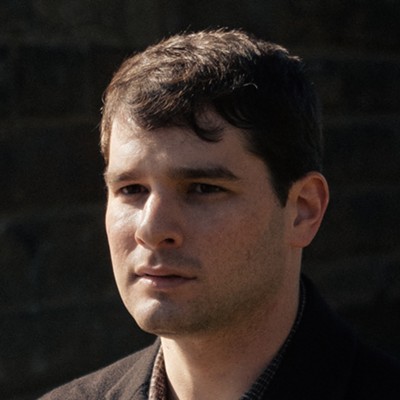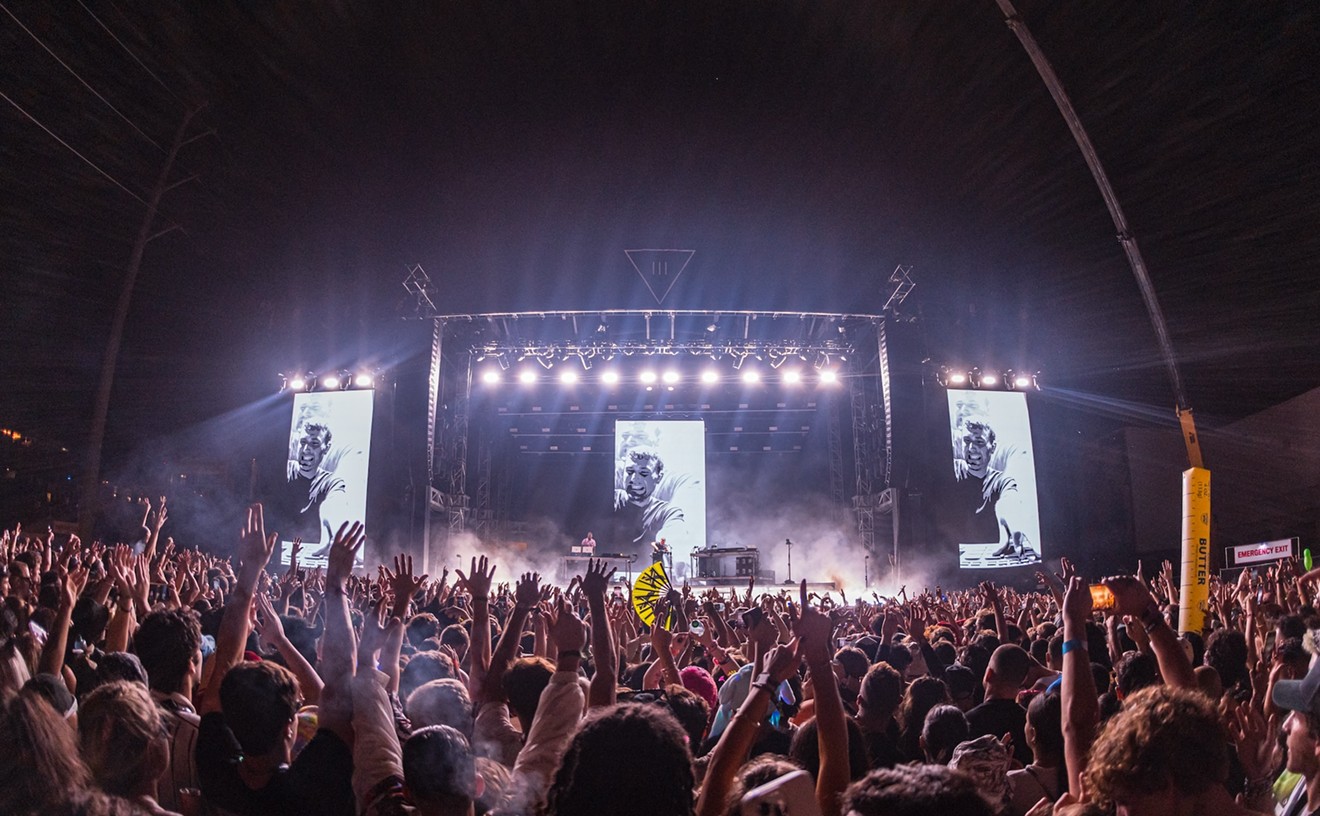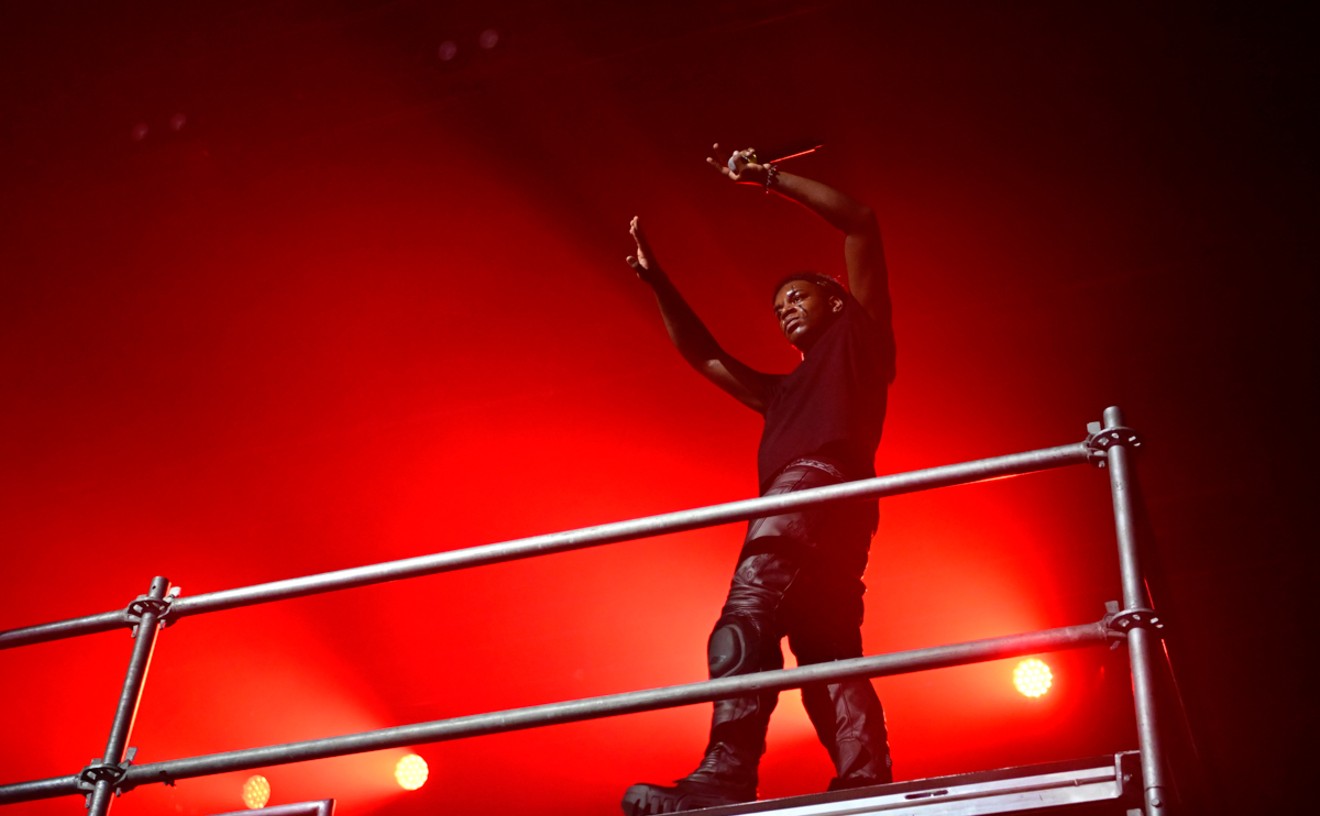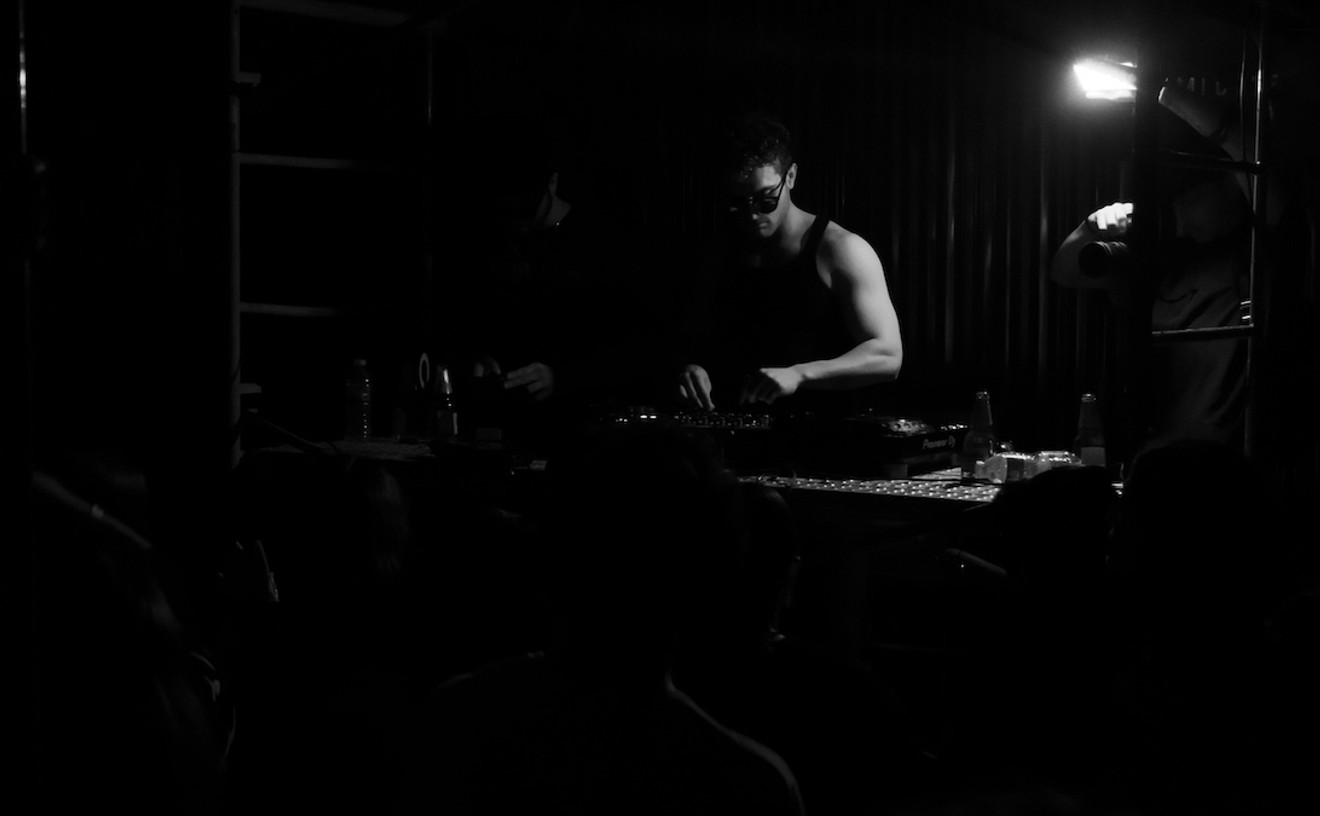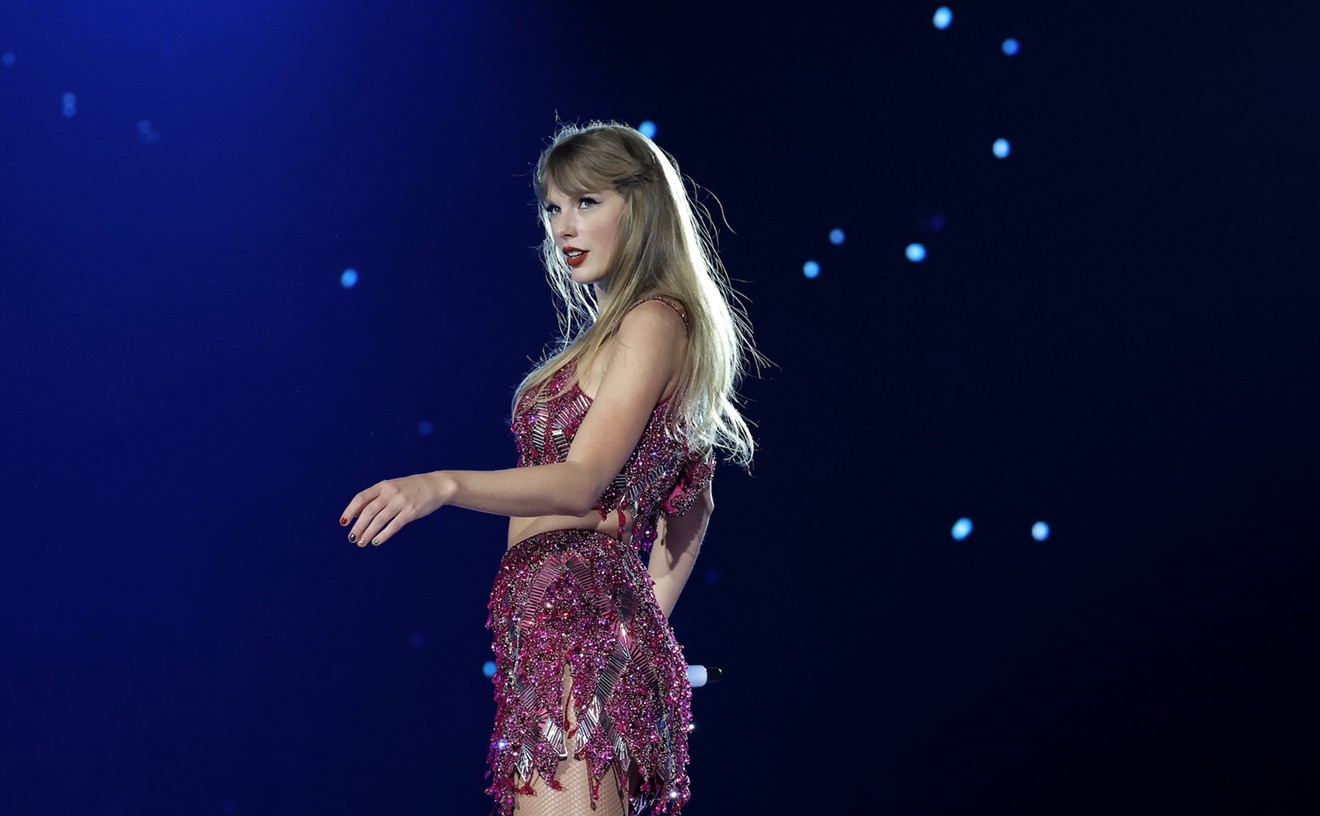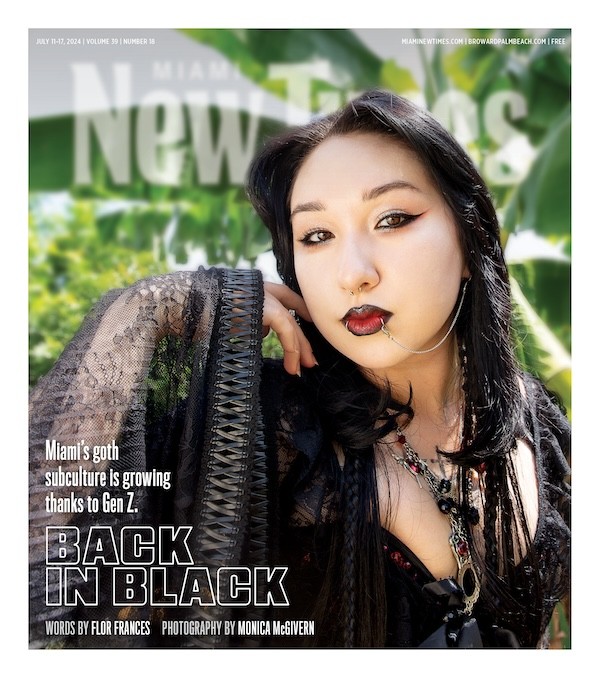Still, a lot has stuck around in this fickle place. Churchill’s Pub has remained the center around which our punk and noise music communities revolve, and Ultra Music Festival is still plugging away despite a vocal minority’s best efforts to boot it. New waves have arrived on our shores too: Rolling Loud made Miami an international destination for hip-hop; local dance music and electronic artists are establishing dedicated followings; and the Latin music scene that’s long called the city home is bigger than ever. The more things change, the more they stay the same.
Here are 15 developments that shaped Miami music in the 2010s:
The Lovers' Quarrel Between the City of Miami and Ultra
Like so many star-crossed romances, Miami and Ultra Music Festival couldn't quit each other no matter how hard they tried. After moving to Bayfront Park in 2001, the electronic music festival proceeded to grow at nearly the same dizzying pace as downtown Miami's residential projects. Downtown denizens and Ultra organizers seemed mired in a rock-meets-immovable-and-immensely-profitable-object situation until the unthinkable happened September 27, 2018, and Miami commissioners voted unanimously against allowing the festival to be hosted at Bayfront Park the following year. Short on time and options, the festival moved to Virginia Key for its 2019 edition — to disastrous results. After Ultra threatened to leave Miami and take its assorted economic benefits with it, the city backed down and allowed the fest to return to Bayfront in 2020 for another shot at wedded bliss. — David Rolland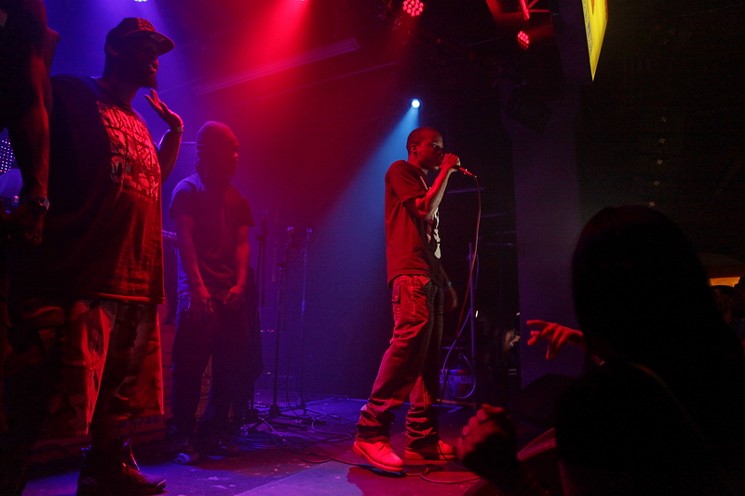
Raider Klan teamed up with Vice to take over Grand Central in July 2013.
Jipsy/NefariousGirl.com
Raider Klan Makes Miami Rap Scary
The internet still felt like a brave new world for music in the early 2010s. Bedroom musicians were churning out new styles like witch house and vaporwave, and rap collectives such as Odd Future and A$AP Mob took to new sites like Tumblr to disseminate their music.Perhaps the most mysterious of these groups was Miami’s Raider Klan. Inspired by Three 6 Mafia and the Memphis horrorcore scene of the '90s, Raider Klan made tracks with dark, otherworldly beats that sounded like they were recorded on a damaged cassette tape. Although members of the group discussed familiar hip-hop territory such as drugs, sex, and money, they also placed witchcraft, demons, and hotep philosophy at the fore of their aesthetic. The collective's album cover art usually included skulls, weed leaves, and horror movie-style fonts.
Owing mostly to founder SpaceGhostPurrp’s erratic behavior, the most talented Raider Klan affiliates — Denzel Curry, Xavier Wulf, Chris Travis, Lil Ugly Mane — distanced themselves from the group by the middle of the decade. They left behind a legacy of incredible, innovative music, albeit one that’s tragically vanishing from the internet in a cloud of deleted links. — Douglas Markowitz
Spec's Music Closes Its Last Store
Several generations of Miami music fans bought their records, CDs, eight-tracks, and cassettes from the regional retail chain Spec's Music. The company was founded in 1949 and once operated 49 locations across South Florida. But by the time the last Spec's closed its doors for good in 2013, the first thought many of its former customers had was one of amazement that the store had lasted that long. Later came the nostalgia and the remembrances of digging through its aisles after a movie at the Riviera or ice cream at Swenson's. Spec's was a gateway drug for many a Miamians' music addiction: I happened to be sucked in with a cassette of the frat-boy raps of the Beastie Boys' debut LP, Licensed to Ill. I continued to visit throughout the years until, like so many others, I stopped paying for music. — David RollandIII Points Shifts the Landscape
Miami’s music scene changed significantly in October 2013 with the debut of a new music, art, and technology-themed festival in Wynwood. Since its earliest days, III Points has made it a point to spotlight local acts and carve out room for them to share space with internationally renowned talents. As its lineups continually illustrate, the young festival has remained true to its mission of providing a platform to those who help foster the scene year-round. Festival cofounders David Sinopoli and Erica Freshman were involved in Miami's musical community before III Points was even an idea, and their love of the city and the people who make it a place worth living shows. Sinopoli became a co-owner of Club Space in 2016 and has since worked to bring a taste of the festival's left-field sensibilities to the downtown Miami club. — Jessica GibbsChurchill’s Pub Changes Ownership
When Dave Daniels — a British transplant with a hankering for cider, cars, and ladies' legs — opened Churchill’s Pub in 1979, he created a sacred nucleus for Miami's live music universe. Over the years, with fútbol on the telly, the musical curatorship of Rat Bastard, the bouncing of Mr. C at the door, and the sparkling personality of Irish Nicky behind the bar, the Little Haiti dive became a musical church with dedicated acolytes. Churchill's is a recognized institution locally and internationally, having enjoyed visits from Bono and Iggy Pop as well as hosted thousands of wild live shows, poetry readings, and activist gatherings. When the bar's faithful heard Daniels was selling the "beloved shithole," chaos reigned in a community that feared displacement. Former New Times music editor Sean Pajot and I responded to the news the only way obsessive music journalists know how, by documenting an oral history of the precious Miami landmark. Thankfully, the new owners only cleaned the floors and renovated the gruesome bathrooms. But in 2014, when Daniels stood up from a stool at the end of the bar to step outside for the last time, some magic left with him. — Liz TracyMiami Bands Continue Leaving for Greener Pastures
In 2008, the New York Times shone a spotlight on Miami and declared it "a tropical bohemia in the makings." At the center of the article was Rachel Goodrich, a local singer-songwriter who was generating a lot of buzz on the strength of her debut album, Tinker Toys. It seemed like the Magic City's music scene would finally receive its moment in the sun, but Goodrich decamped to Los Angeles to be closer to the epicenter of the music industry.It's a standard narrative for Miami-bred creatives, and though a lot of things have changed in the city over the past ten years, the degree of support — or lack thereof — live local acts receive has not changed. For every musician who's still trying to make it work here, others, such as Denzel Curry, Deaf Poets, and Baybe, have left, with many claiming South Florida limits artists in their pursuit to make music a full-time career. That's not to say there isn't an infrastructure down here — there are plenty of record labels, studios, and talented, ambitious producers. However, all of these resources tend to favor acts working in hip-hop or Latin. If you're a band trying to gain experience onstage, you're constrained by Miami's geographic isolation, which makes touring an expensive and time-consuming undertaking, a problem further complicated by the city's lack of small to midsize venues. There are only so many times a band can play Churchill's Pub or Las Rosas in a year. — Jose D. Duran
Rolling Loud Makes Some Noise
The inaugural Rolling Loud took place in 2015 and was, in New Times' own words, "a mess." Weeks before its debut, the little festival that could told us it wanted to be the Ultra Music Festival of hip-hop. But the first edition ended up being more like the Ultra of fucking up: The sound was a mess, lines were long, it rained, and the smoke alarm apparently would not stop blaring. Reports also spread of fights and vomit. It was a debacle that failed to foreshadow what Rolling Loud would become five years later: one of the biggest hip-hop events in the world, boasting events in Europe and lineups that include every important rapper you can imagine. There are still plenty of fights and vomit, but now one could make the argument that Rolling Loud is a much more influential music gathering than Ultra. — Ryan PfefferLatin Music Rises to the Top of the Charts
Latin music has always had a strong following in Miami, but it became a much more prominent cultural force in the 2010s. From the “Despacito” takeover in 2017 came a wave of artists from Puerto Rico, the Dominican Republic, Colombia, and elsewhere, all working under the umbrella of musica urbana. Whether you prefer the trap influence in crooner Bad Bunny’s X 100PRE or the chameleonic J Balvin’s shifting style, there’s something in the extended urbana universe for everyone, even if you don’t speak a word of Spanish.This Latin wave dovetailed nicely with the relocation of the annual iHeartRadio Fiesta Latina from Inglewood, California, to Miami in 2015. Since the festival made the American Airlines Arena its new home, the Magic City has been rightfully acknowledged as the true capital of Latin pop music: “Despacito” was written and recorded here, and Bad Bunny wrote “Otra Noche en Miami” based on his experiences navigating the city’s nightlife. When the Super Bowl returns to Miami next year, halftime performers Jennifer Lopez and Shakira stand poised to push the movement into a new frontier. — Douglas Markowitz
DJ Khaled Gets Lost on his Jet Ski and Becomes an Instagram Star
It’s hard to imagine a time when DJ Khaled was not a global celebrity, even for those of us who remember the days when he was more local novelty than omnipresent media god who is somehow on every TV channel all the time. (Seriously, turn on your TV right now and try to find a channel where he is not selling you something.) But it wasn’t a song that launched Khaled into this weird dimension of fame. It was Snapchat, and a specific instance where he live-streamed his way through getting lost at sea on his Jet Ski. The next day, it seemed as though every website had published a blog about the incident; it was harrowing, hilarious, and the millennial generation’s version of Baby Jessica getting stuck in the well. After it happened, Khaled’s life — and Miami music — was never the same. — Ryan PfefferSoundCloud Rap Claims South Florida for Its Own
Preceded by the internet-savvy Raider Klan and wild local characters such as Stitches, a new class of rapper emerged in the late 2010s that completely disrupted the ecosystem of hip-hop and, even better, made a whole lot of boomers really fucking furious. Named for the site that disseminated the music, SoundCloud rap was (and maybe still is) a low-skill, high-energy scene that harnessed the emotional volatility of its teenage audience, combined it with cheap and often pirated production software, and produced, well, Lil Pump's “Gucci Gang.” However, it also gave us the cloudy “emo-rap” of Wifisfuneral and Smokepurpp, the lightning-fast aggression of Ski Mask the Slump God, and the controversial career of XXXtentacion.Not every SoundCloud rapper came from South Florida, but Miami — with Rolling Loud as a rallying point — was the scene’s spiritual heart. That many of its young members keep dying of drug overdoses (or murder, in X’s case) is a sobering reminder that the brightest lights burn the fastest. — Doug Markowitz
Miami-Born Record Labels Expand Their Reach
Miami’s homegrown record labels have enjoyed a spurt in popularity over the last few years. Although there’s precedent for influential Miami-born imprints — look no further than Schematic Music Company or TK Records — the visibility of such groups grew tremendously during the latter half of the 2010s. In addition to releases from the likes of long-running party Slap & Tickle and the playfully named Sweat Records Records, more and more labels have managed to build followings through creative avenues. Brother Dan’s Terrestrial Funk label has built a name for itself by supplementing its reissues of obscure dance cuts with off-the-grid gatherings along with a weekly party and monthly vinyl fair at Gramps. Omnidisc and Space Tapes — the electronic music labels headed by Danny Daze and Nick León respectively – have also bolstered their output and expanded their audience by touring their roster as well as organizing events at DIY spaces and clubs. Consistency is key, and we’re rooting for all involved parties to keep the momentum up in the new decade. — Zach SchleinInternet Friends Help Transform Miami's Queer Nightlife
Miami has always had its share LGBTQ+ acts, but something in the last decade pushed them to get better organized and demand more visibility. It started with the rise of explicitly queer events like Counter Corner in 2014, which gave performers — mostly of the drag variety — a space in which they were free to publicly experiment with their craft. Then there was the collective Internet Friends, which has been consistently throwing parties around Miami since its 2017 founding. Internet Friends' parties have given local queer and leftfield dance music artists a means of sharing sounds not often heard in traditional venues. Perhaps that's why Internet Friends stuck strictly to holding events at DIY spaces — most notably the 229 Warehouse — before landing a residency at Club Space's first-floor venue the Ground. It cannot be understated how important it is to have a spot of Space's prominence acknowledge LGBTQ+ clubgoers and openly give them a place to congregate and express themselves. (Similarly, smaller venues like Gramps and Las Rosas have also begun hosting queer nights.) The goal of Internet Friends and contemporaries like Double Stubble and Gender Blender is not necessarily to blend into the heteronormative culture at large, but instead, to celebrate and champion marginalized groups through the context of clubbing — it's a trend that's truly enriched the scene these past few years. — Jose D. DuranMiami Acts Get Comfortable With Music en Español
Despite Miami's high concentration of Hispanics, its music scene has largely been segregated by language, with bands having to choose between English or Spanish and little commingling happening. However, in the last few years, as acts like Rosalía, Bad Bunny, and J Balvin have ruled the Billboard charts, it appears as though a lot of local musicians have realized that this rule of having to opt for one language or another is bafflingly stupid. This development has coincided with our current political and cultural climate, where many are blaming Latin American immigrants as the reason for the United States' profound mediocrity. Well, fuck that: Miami acts like Las Nubes, Dracula, and Baby City Club have all given the middle-finger to the myth of assimilation, and are making music on their own terms. Las Nubes seems particularly comfortable releasing songs both in English and Spanish depending on their mood. Here's hoping the next decade sees more of the walls separating English- and Spanish-language musicians crumble. — Jose D. DuranXXXTentacion's Career Unfolds Tragically
There were no winners in the story of XXXTentacion. Neither the purported victims of the Broward County rapper's hideous alleged crimes nor his fans — who clung to his every word with the universally understood intensity of a young person who has finally found art that makes them feel acknowledged — emerged from his orbit unscathed. Jahseh Dwayne Onfroy's life was undoubtedly complicated and troubled; that doesn't mean it should have ended with him being executed in the street over a Louis Vuitton bag full of money. South Florida had never seen a star rise so fast and burn so intensely—and if we ever do again, hopefully they can learn from the many, many mistakes that happened in the making and subsequent destruction of this star. — Ryan PfefferThe Black Friday Rave Opens New Doors
There’s a specific, difficult-to-describe sensation that comes with watching creative and musical movements flourish in real-time. Hunter S. Thompson famously dedicated a chapter of Fear and Loathing in Las Vegas to the countercultural wave that subsumed and later retreated from San Francisco in the 1960s, and actor Steve Coogan deployed a similar metaphor in his portrayal of Factory Records cofounder Tony Wilson in 2002’s 24 Hour Party People.“The history of popular music is like a double helix,” he says. ”That's two waves that intertwine. When one wave goes like this, the other one goes like that; When one musical movement is in the descendant, another one is in the ascendant.”
The Black Friday Rave at 229 Warehouse felt like one such ascent: Following years of Ultra Music Festival-enabled EDM dominance, the 2018 gathering organized by local DJs True Vine and Sister System (with the help of what seemed like the entirety of Miami’s creative community) facilitated a breakthrough moment for the city’s underground electronic artists to reach a wider audience and direct Miami’s dance music dialectic. With the help of boosts from III Points and Boiler Room, the ripple effects of the night have become visible around the world in just one years’ time. — Zach Schlein

